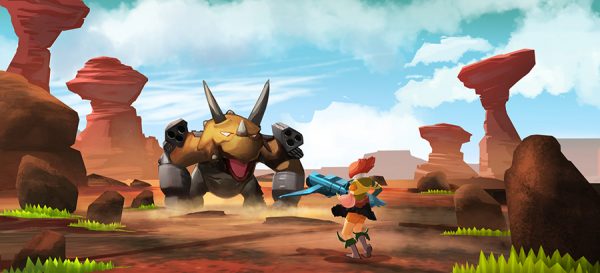DSOK Spotlight: Adam Grantham

By Adam Grantham
I’m a professional video game designer and I’ve had Type 1 Diabetes for 19 years. I remember it being pretty rough when I first got diagnosed. I was lucky that I always preferred proteins over sweets and starches so the dietary shift wasn’t as challenging for me as it might be for other kids. From what I remember the disease was never a big focal point of my life, just something I had to deal with. I never went to a diabetes camp or anything like that. I had occasional trouble with school officials not understanding the disease but as a kid who loved to talk back I didn’t mind educating them. I had trouble keeping my numbers under control but I think my A1c was around 7-8 at its worse.
By my teen years I had switched over to the pump. It was about that time that I really started improving my blood sugar management. When you’re first diagnosed the testing and shots and counting carbs all feel like the disease. But the truth is they are the way to control the disease. It became clear to me that getting low or high was way more obnoxious than frequent blood testing, watching what I eat or taking the right amount of insulin. I remember things being pretty steady and under control once I crossed that threshold and changed my thinking. From then on my A1C was almost always between 6-6.5 and my day to day experience was pretty balanced. That change in mindset is a big part of what I wanted to express in The Magi and The Sleeping Star, the diabetes self-management video game I designed.
Ever since I was little I wanted to be a game designer. It was rough making it a reality growing up in Oklahoma, because there aren’t a lot of game development options there. After graduating high school I went to Northern Oklahoma College’s school of Multi-Media and Digital Communications and got an associate’s degree in 3d Animation and Post-Production. It was a small school with a great program that simulated a real-world production environment where students went through rigorous fulltime training to earn 42 credit hours in 16 weeks. After school I got my earliest experience in post-production, animation and advertising working at CVWmedia in Norman. After a few years and a lot of great experience I moved on to video games as I had always wanted. I worked as an artist at a small startup called Nerjyzed Entertainment in Baton Rouge.
It was during that time that I learned about Re-Mission, a cancer fighting game designed for kids struggling with their cancer treatment. It gave me the idea to create something similar for those with type 1 diabetes. I began work on the design for the game and moved back to Norman. My brother Phil Grantham and I put the story and gameplay mechanics together for what would eventually become The Magi and The Sleeping Star.
Using my personal experience I designed the core diabetes self-management ideas I wanted the game to put across. I wanted the game to illustrate that the disease is just something you have to deal with, but it doesn’t define you. And that everything you do to manage it isn’t the disease controlling you; it’s you controlling the disease. So that’s why even though the main character has diabetes, the game isn’t about diabetes. It’s a fantasy adventure where the hero goes on a quest, which has nothing to do with diabetes. But playing as this hero you have diabetes, and therefore must manage your blood sugar.
I partnered with CVWmedia to form Game Equals Life and worked with a new generation of students at the same school I had gone to years before to create a simple prototype for the game. We announced the project with a prototype video in 2009 and got a great response from the community. Our goal was to build up some interest for the project and kick off development for a full-version. Unfortunately nothing ever materialized. After several months I took a break from the project and moved out to Los Angeles to do more game development for other major studios. I worked at Square-Enix on Project Dropship, at The Workshop on Sorcery, and at Sony Santa Monica on God of War: Ascension. After several years of gaining more design experience I decided I wanted to take another look at The Magi.
My partners and I believed Kickstarter could be a perfect chance to bring The Magi to life as a fully-funded, publicly releasable game. Kickstarter is the world’s largest funding platform for creative projects. It’s a home for film, music, art, theater, games, comics, design, photography, and more. Our belief was that the type 1 diabetes community would love a game like this and be happy to be a part of its development.
Unfortunately after reaching out to over 250 local diabetes organizations nationwide we simply weren’t able to get the word out enough. Either that or the interest we had hoped for wasn’t quite there yet. It’s definitely discouraging but although this particular project is over, we’re still glad we launched the campaign and believe it was a worthy cause. I hope that maybe in the near future people who live and work with type 1 might be more receptive to considering a project like this, and that the next designer to come along can help make a difference.
